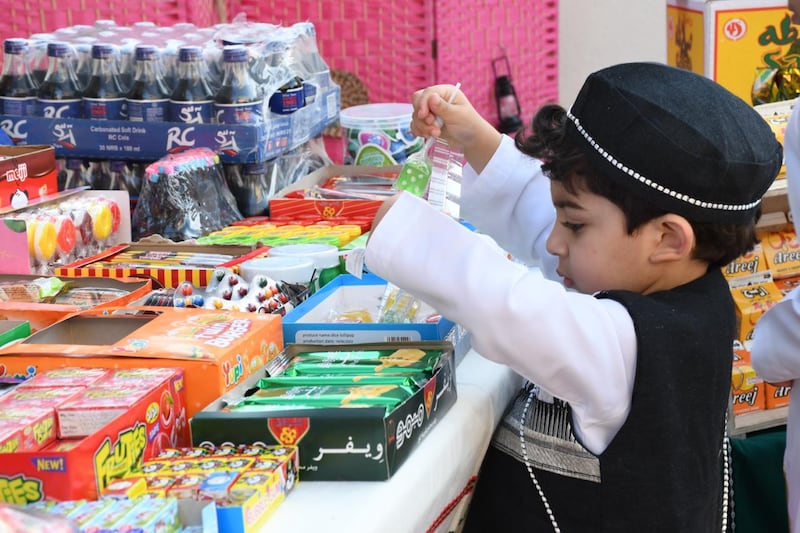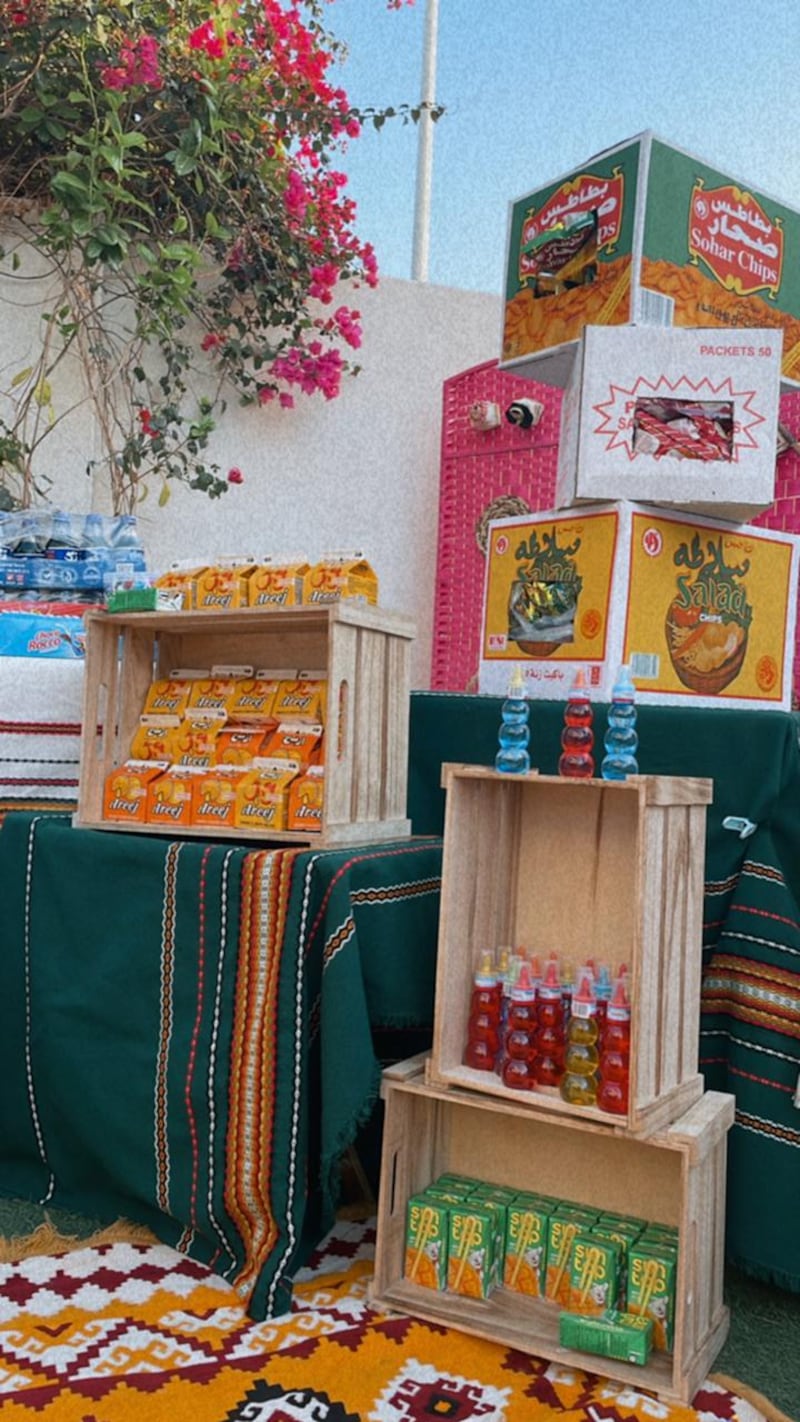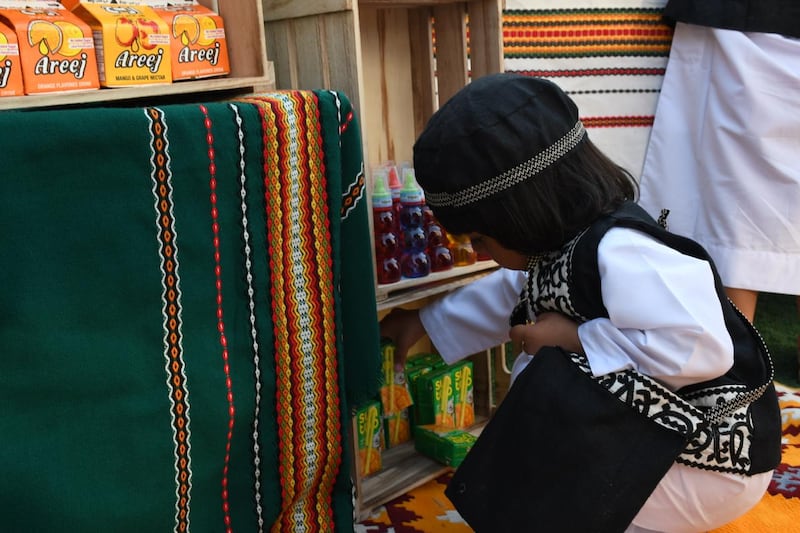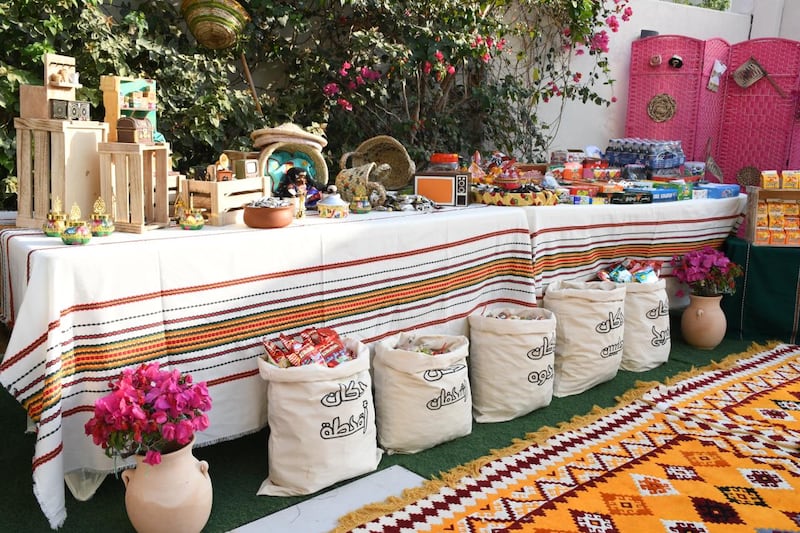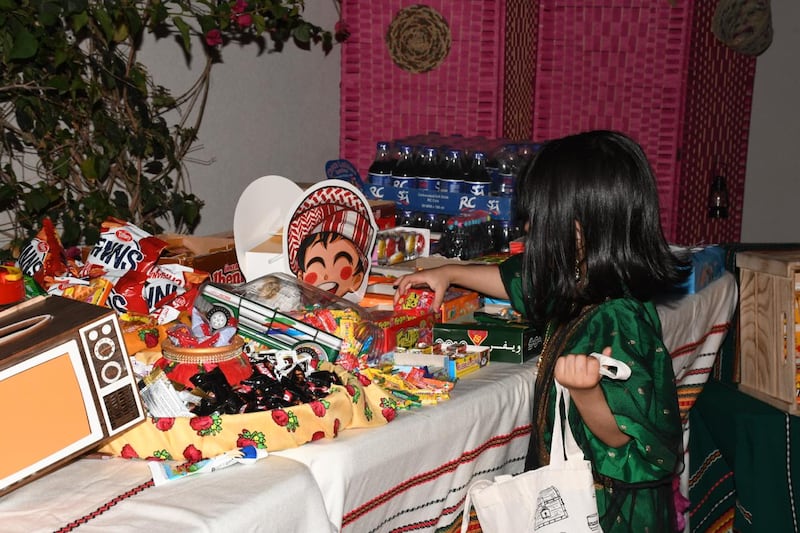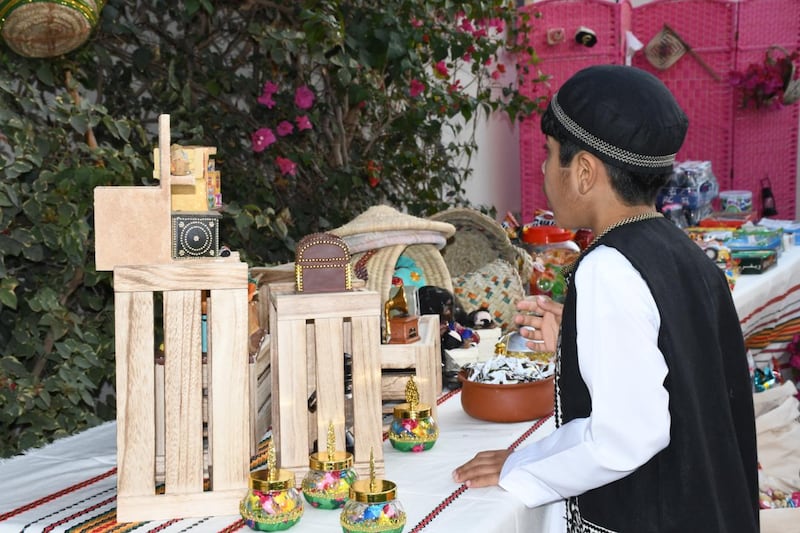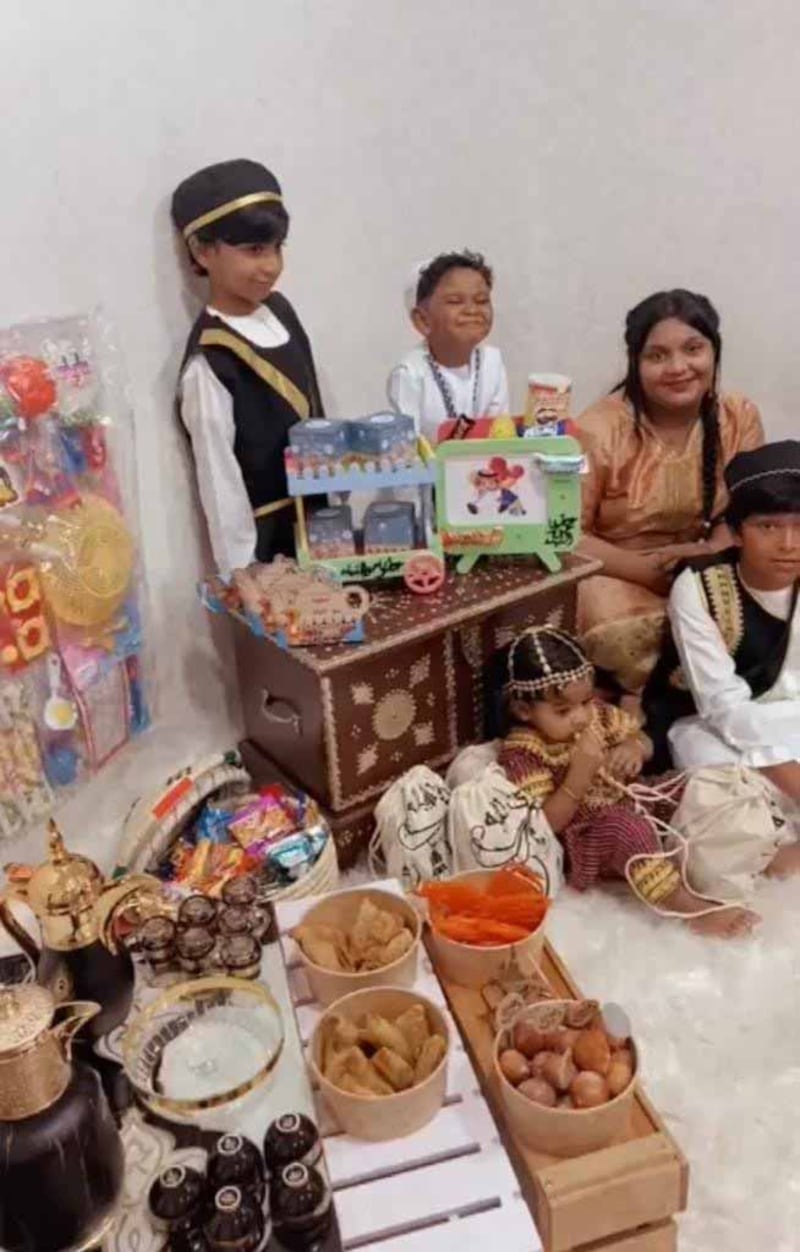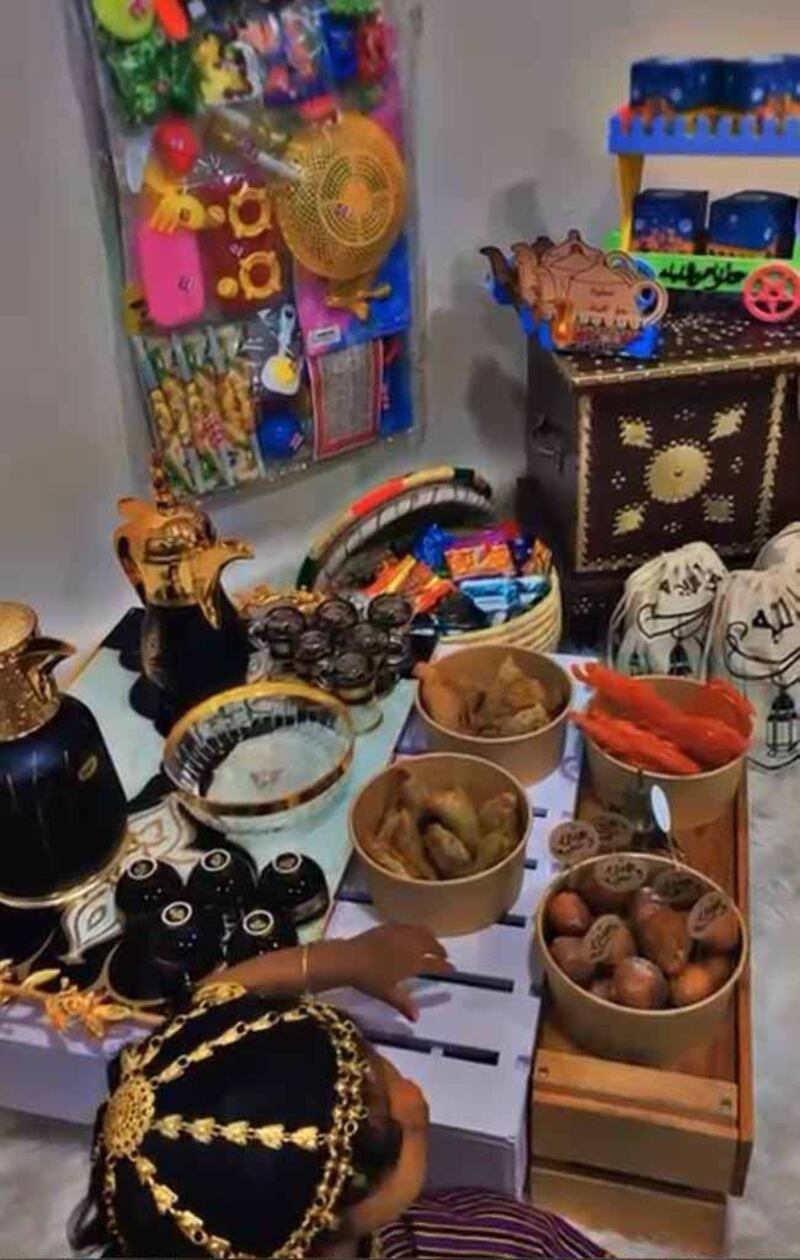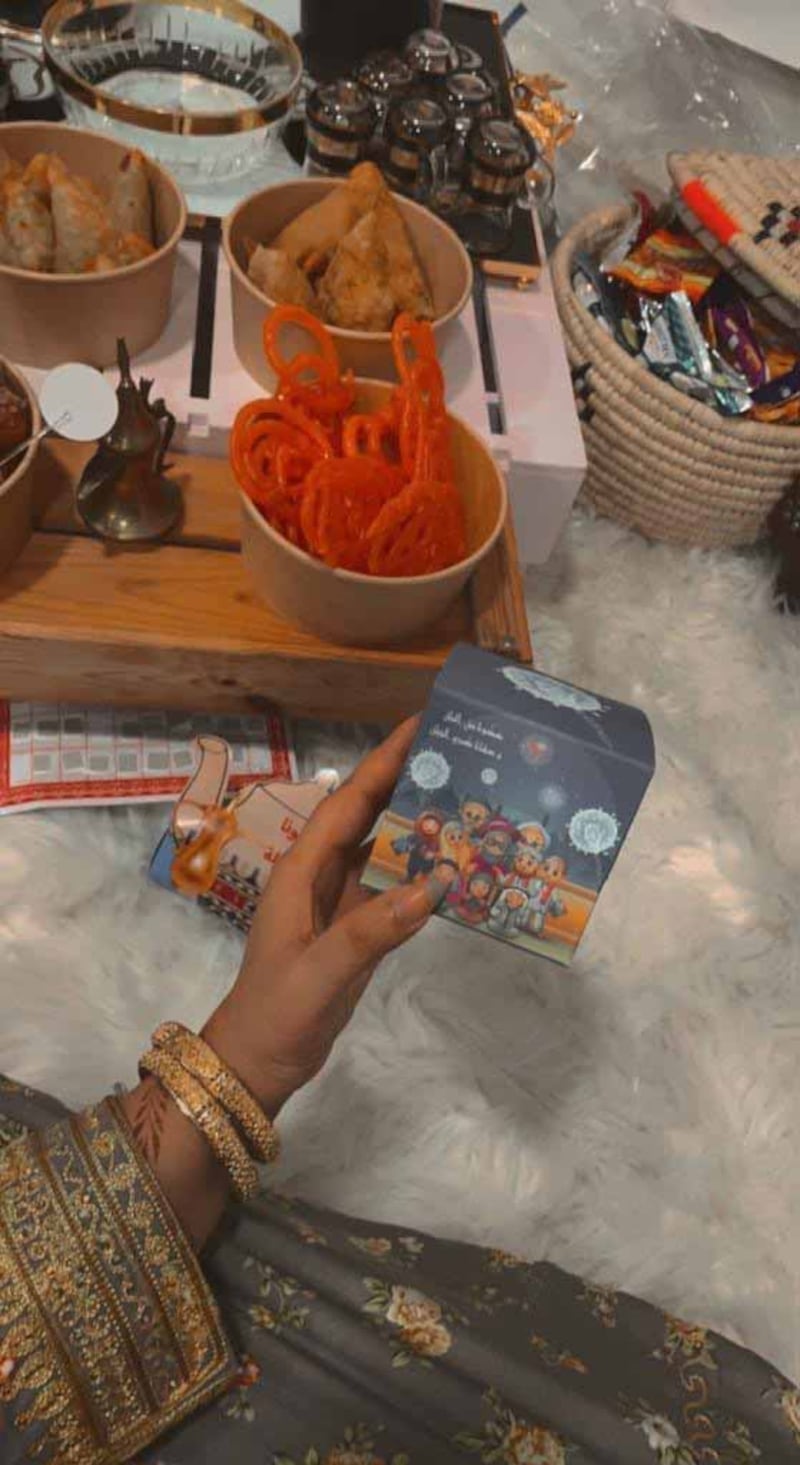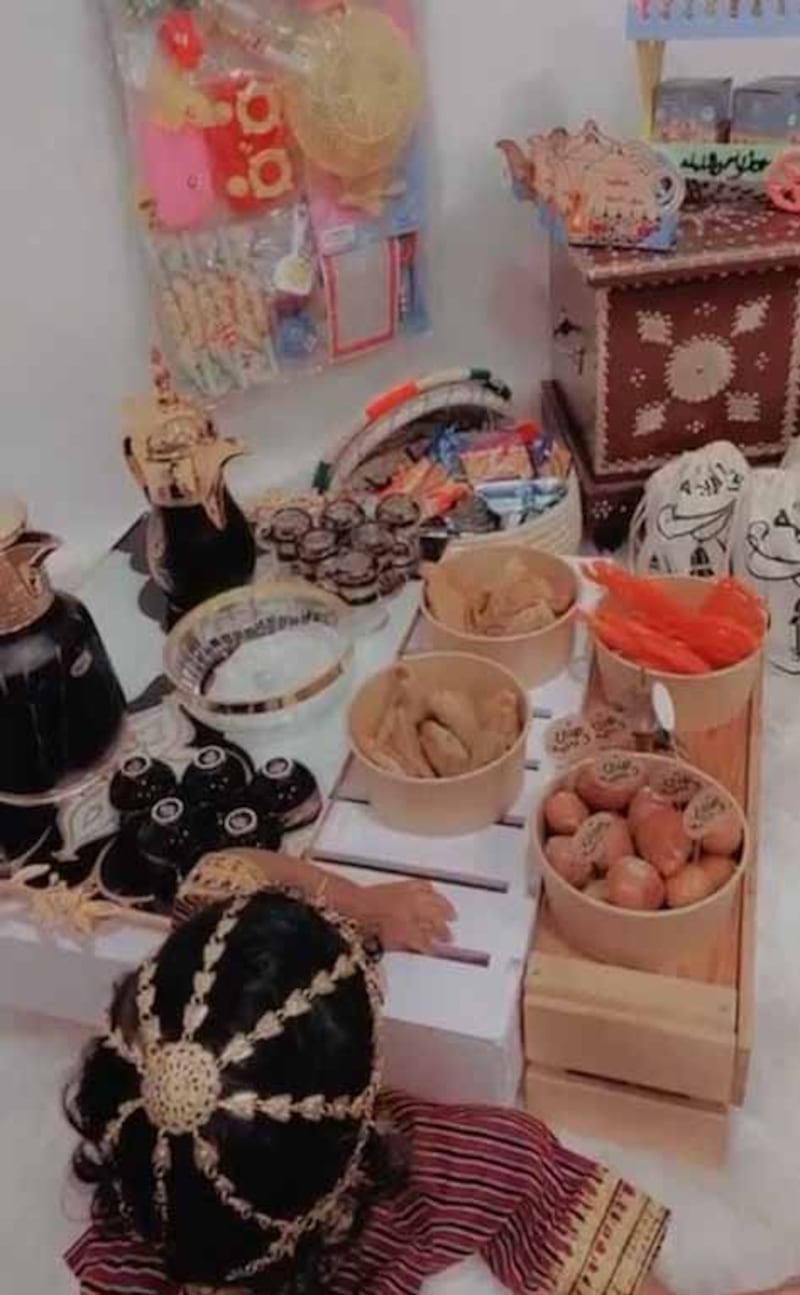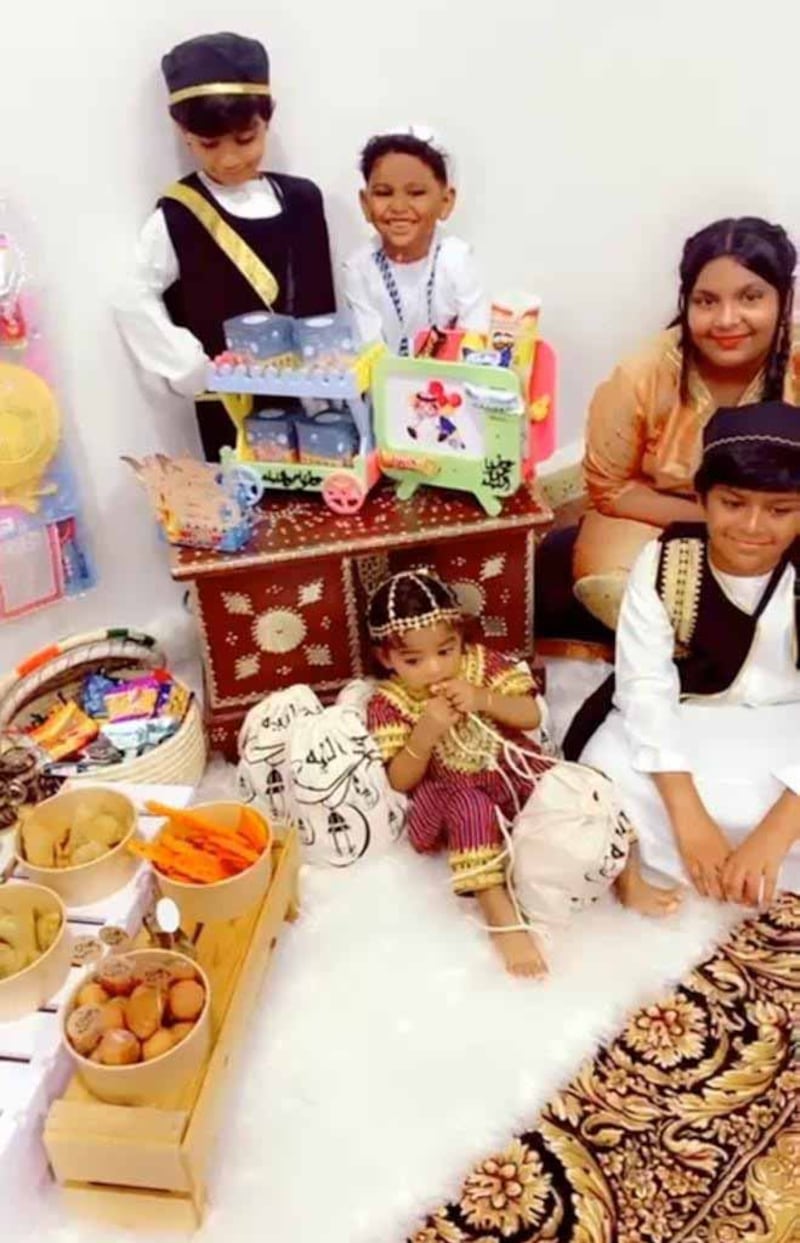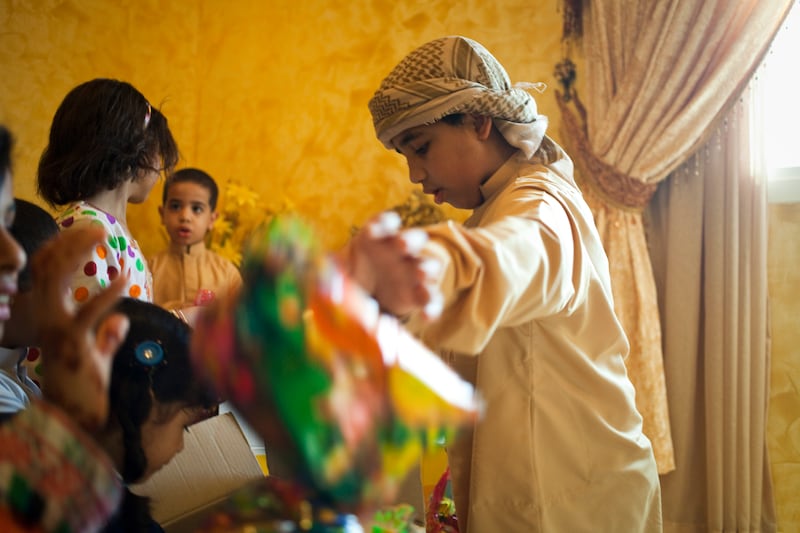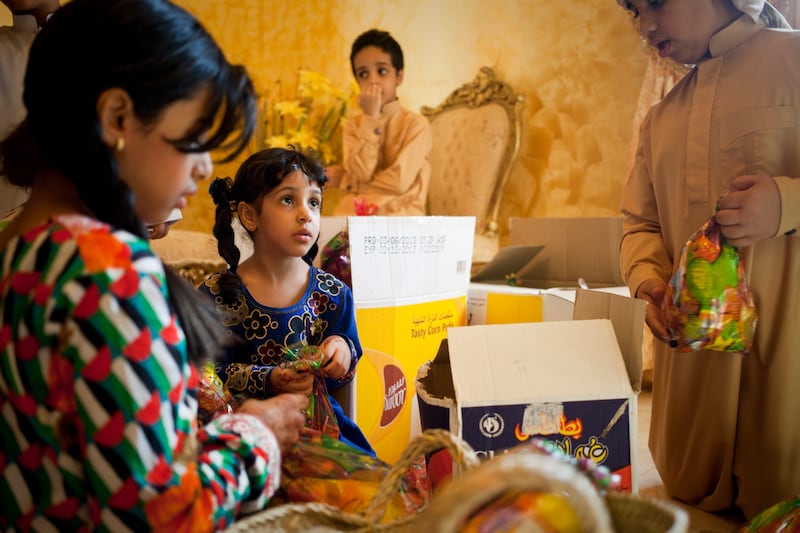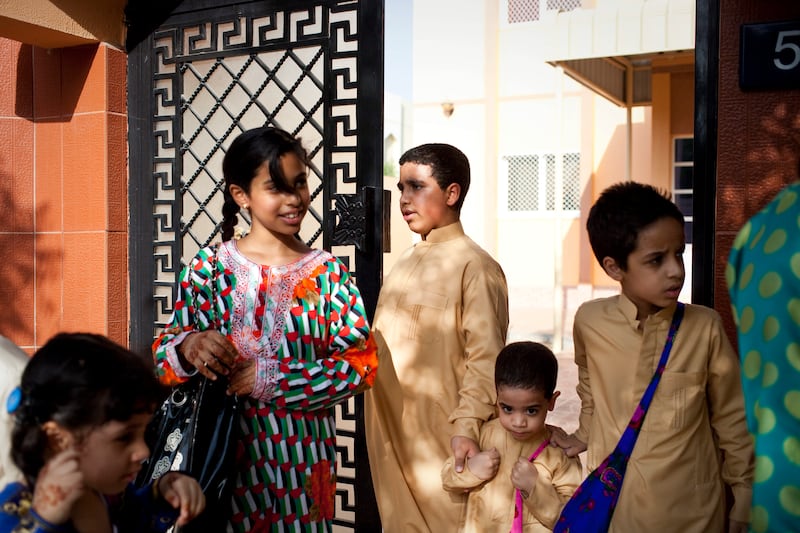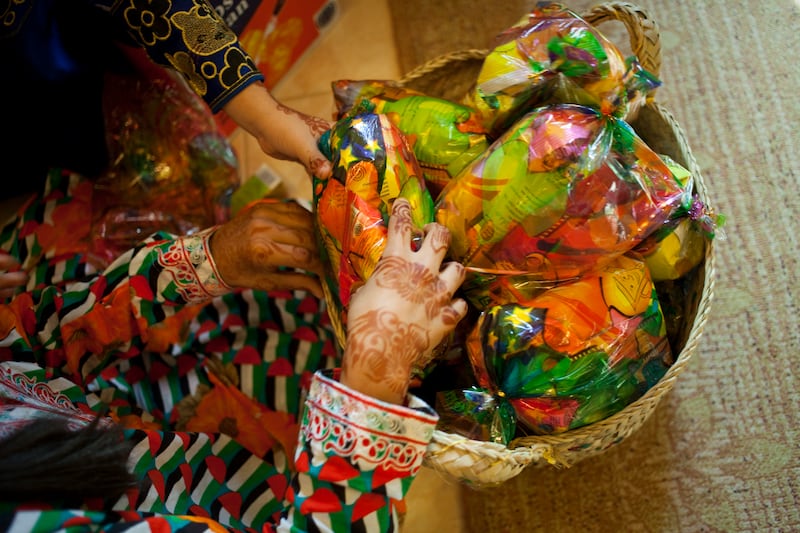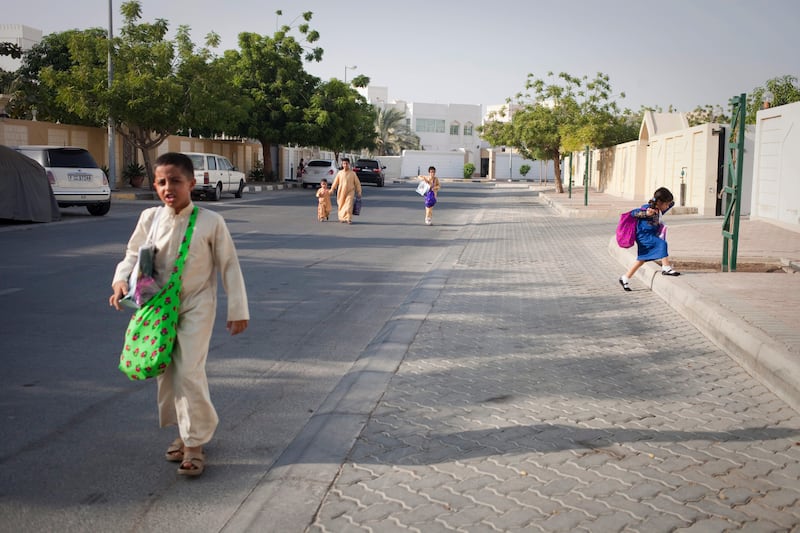Families in the UAE got together on Saturday evening for the traditional celebration of Haq Al Laila, also known across the GCC as gerga’aan or Qaranqasho.
Celebrated on the night of Shaaban 15 in the Islamic calendar, just before the holy month of Ramadan, this year Haq Al Laila – which means For This Night – falls on February 24.
It was a celebration that brought communities together in a vibrant display of culture and joy, as children dressed up and carried colourful woven bags.
After Maghreb prayers, they typically go from door to door, singing in exchange for nuts and sweets.
Some homes have so many children visiting during the celebration that they give out more than 10kg of sweets, usually bought from shops in special Haq Al Laila packages.
“We were raised on this tradition, which was the highlight of our childhood,” said Yaqoob Al Hammadi, an educational expert from Sharjah.
“Going from door-to-door asking for sweets crafted some of my most cherished memories.”
Mr Al Hammadi said the tradition has evolved, with some of his neighbours setting up tents and play areas so visiting children can stay longer.
Part of Arabic heritage
On Abu Dhabi’s Yas Island, Hessa Al Najjar prepared a special area in the garden for her children, ranging from three to 16 years old, to celebrate Haq Al Laila.
She decorated her house and set up a welcoming space for local children to gather sweets and other treats.
“This celebration is a profound part of our heritage, symbolising the communal joy as Ramadan approaches,” she told The National.
“Such traditions are very important in fostering community ties and celebrating cultural heritage.”
The same practice is celebrated on the 15th day of Ramadan, but called gerga’aan in Iraq, Kuwait, Qatar, Bahrain and some cities in Saudi Arabia.
It is celebrated on the same day in Oman too, but called Qaranqasho.
Some trace the tradition’s origins to a simulation of one of the first Ramadans in Islam when Fatima, the daughter of the Prophet Mohammed, distributed sweets to the people two weeks into the holy month.
Others, however, say it’s a celebration that predates Islam and could even be the basis for Halloween’s trick or treat tradition.
Fatima Kashwani, 17, who has been part of the Haq Al Laila celebrations since childhood, explained the significance of the event.
“The night of Shaaban 15 is a cherished event in our calendar. Dressed in our best traditional clothes, we participate eagerly, our bags ready to be filled with sweets.
“It’s a testament to the spirit of giving and creating lasting memories.”
How is it marked?
The tradition of going door-to-door is still practised, although it is not as widespread as in the past.
Neighbourhoods where children can still be heard in the streets include residential areas in Dubai, Sharjah, Ras Al Khaimah and Khor Fakkan.
Children sing in Arabic “Atona Allah yatek bet Makkah Ywdekom” which translates to “give us something so that God will give you something and bless you with visiting the holy mosque”.
Recently, Haq Al Laila has become a more organised celebration held in schools, government offices and homes.
